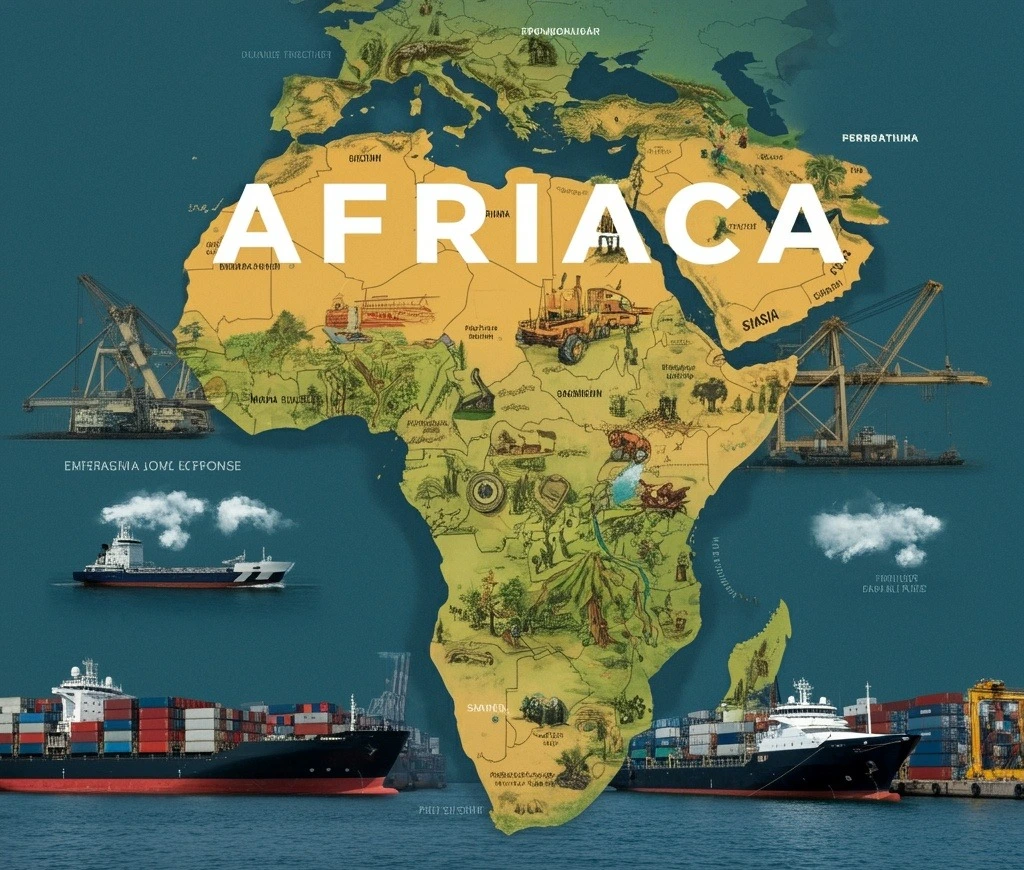The circular economy represents a transformative approach to economic growth and sustainability. It is an innovative system designed to eliminate waste and pollution, extend the life cycle of products and materials, and regenerate natural systems. This model starkly contrasts with the traditional linear economic model, which follows a ‘take-make-dispose’ trajectory, extracting resources, utilizing them to produce goods, and then discarding the remnants as waste. Instead, the circular economy emphasizes resource efficiency, aiming to keep materials in use for as long as possible, thereby driving economic and environmental benefits.
The Billion-Dollar Potential for Africa
A recent analysis highlights that adopting a circular economy could unlock a billion-dollar opportunity for Africa. This transition has profound implications for enhancing food systems, managing plastic and electronic waste, developing low-carbon infrastructure, and ensuring sustainable mining practices. For African economies, this model offers not just a solution to pressing environmental challenges but also a pathway to sustainable development and job creation.
The African Development Bank (AfDB) is at the forefront of this transition, spearheading initiatives through the Africa Circular Economy Facility (ACEF). This multi-donor trust fund is dedicated to accelerating the adoption of circular economic principles across the continent. By providing grant financing for projects aligned with this mission, ACEF is paving the way for a more sustainable and prosperous Africa.
ACEF’s Strategic Objectives
ACEF’s funding strategy centers around three pivotal objectives:
- Institutional Capacity Building: Enhancing the creation of enabling environments that support the circular transition. This involves establishing policies, frameworks, and infrastructures that facilitate the adoption of circular practices.
- Private Sector Support: Empowering start-ups and small and medium-sized enterprises (SMEs) through business skills development programs tailored to the circular economy. This ensures that the private sector is equipped to drive innovation and growth within this model.
- Strengthening the African Circular Economy Alliance (ACEA): This government-led coalition of African nations is instrumental in advancing the continent’s circular economy agenda. ACEA aims to foster economic growth, generate employment opportunities, and deliver positive environmental outcomes. In 2024 alone, ACEF has supported the development of national circular economy roadmaps and action plans in countries like Benin, Cameroon, Chad, Ethiopia, and Uganda.
Expanding ACEF’s Reach and Impact
Established in 2022 with an initial capitalization of €4 million from the Government of Finland and the Nordic Development Fund, ACEF aims to expand its capitalization to €20 million by 2026. The fund also seeks to onboard five additional donor partners to amplify its impact.
Priority Sectors for Circular Transformation
ACEF has identified five key sectors poised to benefit significantly from circular economy initiatives:
- Food Systems: Rethinking agriculture through regenerative practices such as composting, reusing agricultural waste for energy, and optimizing post-harvest loss management. With agriculture employing 60% of Sub-Saharan Africa’s workforce and contributing nearly a quarter of the continent’s GDP, these innovations offer substantial economic and environmental gains.
- Packaging: Addressing the challenge of plastic waste, which constitutes 13% of municipal solid waste in Africa. Scaling up recycling initiatives, transitioning away from single-use plastics, and designing efficient packaging solutions are critical steps toward reducing environmental impacts.
- Electronics: Developing robust systems for the recycling and reuse of electronic waste. This sector holds immense potential for job creation and resource efficiency.
- Fashion and Textiles: Promoting sustainable production and consumption patterns to mitigate the environmental impact of fast fashion.
- Built Environment: Advancing circular practices in construction and urban development to create low-carbon, resource-efficient infrastructures.
A Collaborative Path Forward
The success of the circular economy in Africa hinges on public-private collaboration and the creation of incentives that inspire innovation and investment. By aligning the interests of governments, businesses, and civil society, Africa can harness the full potential of the circular economy to drive economic growth, create jobs, and ensure a sustainable future for generations to come.
The transition to a circular economy is not merely a shift in economic models; it is a call to reimagine how we interact with resources and the environment. For Africa, this reimagining presents a unique opportunity to lead on a global stage, setting the benchmark for sustainable development and innovation.





